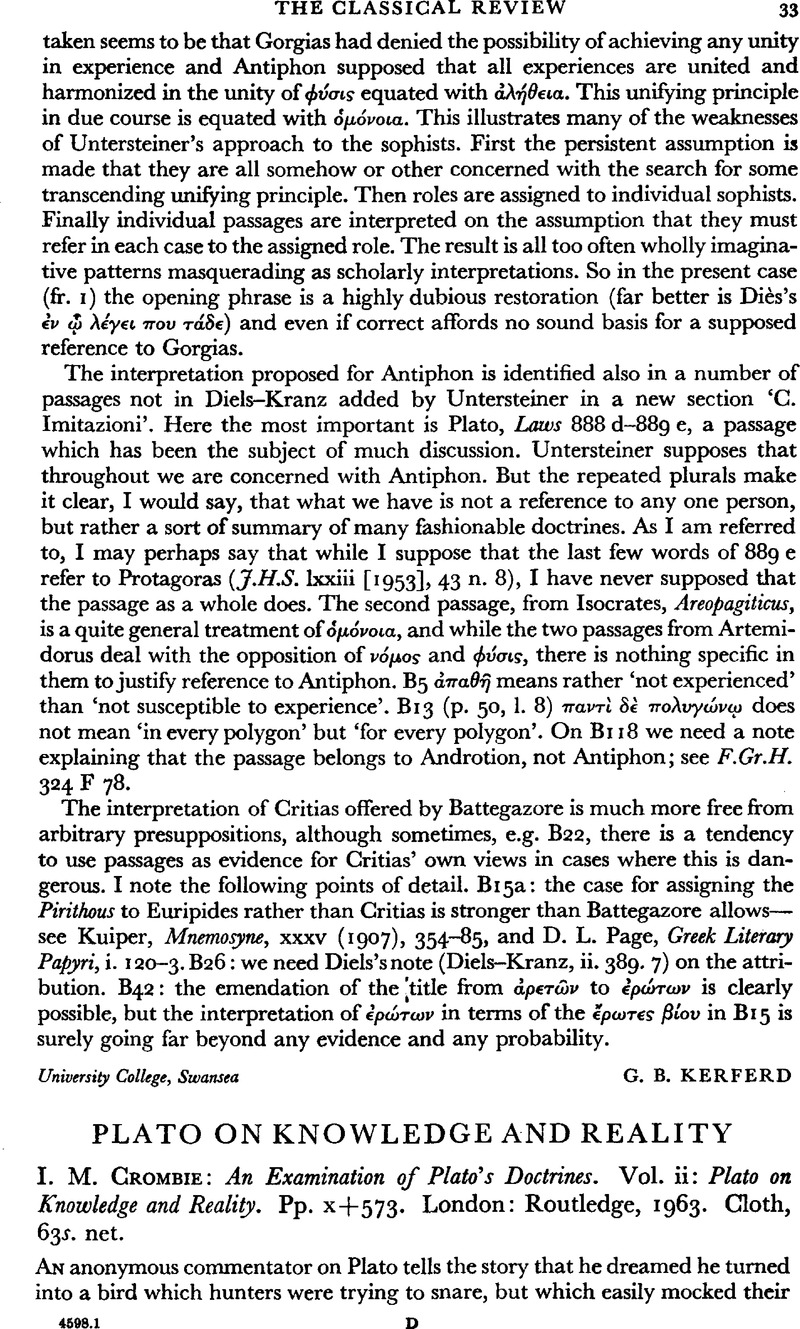No CrossRef data available.
Article contents
Plato on Knowledge and Reality - I. M. Grombie: An Examination of Plato's Doctrines. Vol. ii: Plato on Knowledge and Reality. Pp. x+573. London: Routledge, 1963. Cloth, 63s. net.
Published online by Cambridge University Press: 27 February 2009
Abstract

- Type
- Reviews
- Information
- Copyright
- Copyright © The Classical Association 1965
References
page 34 note 1 See pp. 69, 98, 128, 249, 255, 271, 320 (‘all-important’), 322, 564.
page 35 note 1 Metaph. 1078b27–29. On p. 254 C. says that A. presumably got the next sentence from Plato, so I take it he would grant us Plato's authority for this one also.
page 35 note 2 On p. 285 C. says surprisingly that there is no passage in Plato where it is said that things which have a certain property do not have it to perfection. I should have thought it is said at Phaedo 74 d at least, and I believe Plato would have replied to C. in his own language that it does not make sense to say that they do. It may perhaps be claimed that the experiment on Meno's slave tells against what is said in the paragraph above, but I think I should want to argue that this is not so.
page 35 note 3 When on p. 214 C. says that ‘harmony will be represented in the self-activation of human beings not by any system of circular orbits’, he seems to have forgotten the ‘circuits of the soul’ at Tim. 43 ff., described at 44 d as ‘divine circuits located in the head’. At 44 b κύκλων πειφοραί go on in head. Perhaps, however, these ideas do not ‘make sense’, and are therefore not to be allowed to Plato the philosopher.


